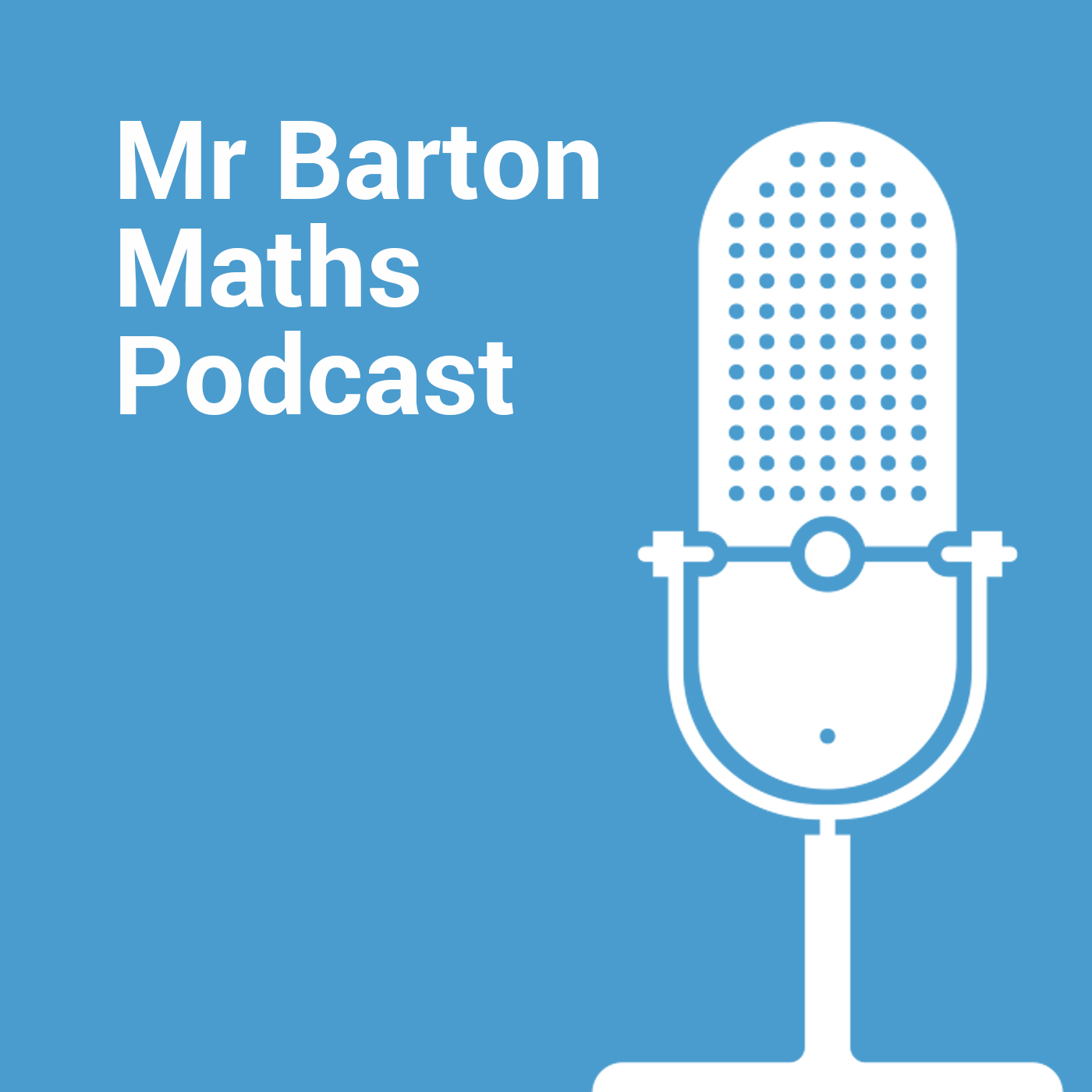
Craig Barton interviews guests from the wonderful world of education about their approaches to teaching, educational research and more. All show notes, resources and videos here: https://www.mrbartonmaths.com/blog/
Camilla Gilmore is the Developmental Psychology and lead of the Centre for Early Mathematics Learning. She has done research for 20 years focused on learning mathematics in particular looking at cognitive aspects (e.g. executive function skills that we discussed back in episode 151)
This is part of my Research in Action mini-series, where I interview a researcher from the Mathematics Education Centre at Loughborough University about their chosen area of interest, and the implications for maths teaching and learning. You can check out the show-notes here: mrbartonmaths.com/blog/research-in-action-22/
Time-stamps:
- The importance of early years maths. (7:38)
- What are the age groups of early learners? (11:52)
- How much variation is meaningful and how much incidental? (15:42)
- Early years and executive functions. (21:11)
- Cognitive load theory and extraneous load. (27:13)
- How retrieval practice works in early years. (31:10)
- The month of birth effect on learning. (35:33)
- How much do emotional aspects play a role? (39:47)
- Positive attitudes to maths in early years. (44:26)
- What secondary teachers can learn from early years teachers? (48:39)
- How did you change your mind about the centre? (54:20)

Episode details
Camilla Gilmore is the Developmental Psychology and lead of the Centre for Early Mathematics Learning. She has done research for 20 years focused on learning mathematics in particular looking at cognitive aspects (e.g. executive function skills that we discussed back in episode 151)
This is part of my Research in Action mini-series, where I interview a researcher from the Mathematics Education Centre at Loughborough University about their chosen area of interest, and the implications for maths teaching and learning. You can check out all the previous conversations in the series here.
Time-stamps
- The importance of early years maths. (7:38)
- What are the age groups of early learners? (11:52)
- How much variation is meaningful and how much incidental? (15:42)
- Early years and executive functions. (21:11)
- Cognitive load theory and extraneous load. (27:13)
- How retrieval practice works in early years. (31:10)
- The month of birth effect on learning. (35:33)
- How much do emotional aspects play a role? (39:47)
- Positive attitudes to maths in early years. (44:26)
- What secondary teachers can learn from early years teachers? (48:39)
- How did you change your mind about the centre? (54:20)
The Big 3
- DREME network
- Key understandings in mathematics learning
- The Importance of Number Sense to Mathematics Achievement in First and Third Grades
My usual plugs
- You can help support the podcast (and get an interactive transcript of this episode) via my Patreon page at patreon.com/mrbartonmaths
- If you are interested in sponsoring an episode of the show, then please visit this page
- You can sign up for my free Tips for Teachers newsletter and my free Eedi newsletter
- My online courses are here: craigbarton.podia.com
- My books are “Tips for Teachers“, “Reflect, Expect, Check, Explain” and “How I wish I’d taught maths”
